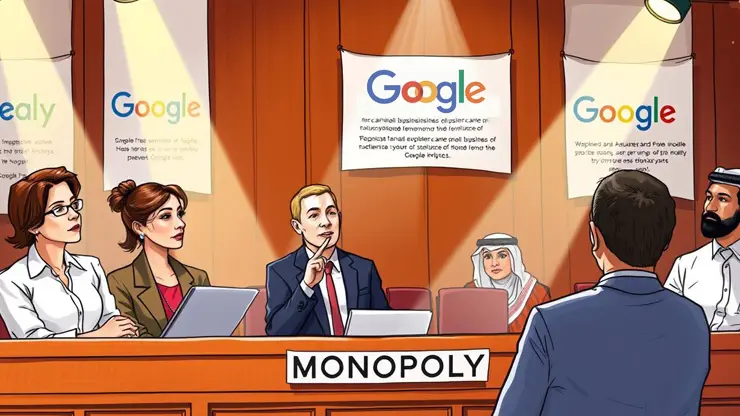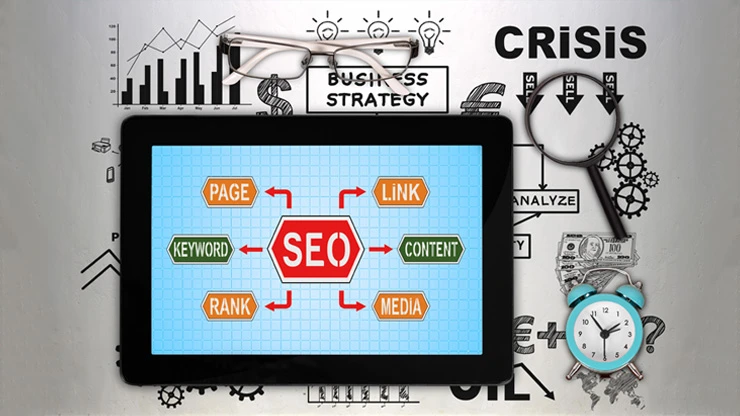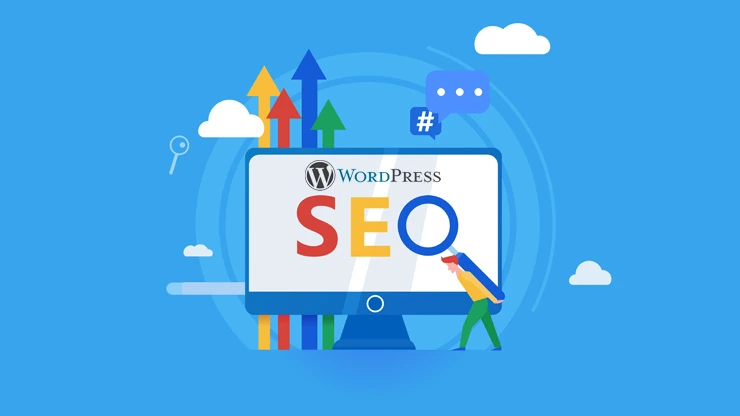Yesterday, a landmark ruling declared Google a monopoly following a protracted legal battle that began last year. This decision has stirred a myriad of reactions from digital marketers, industry experts, and legal analysts. As the ramifications begin to unfold, uncertainties loom over long-term implications, potential market disruptions, and the arduous task of setting meaningful penalties.
Julie Bacchini, President and Founder of Neptune Moon, emphasizes that the ultimate impact of the court ruling declaring Google a monopoly will be determined during the remedy phase and Google’s subsequent appeal. Bacchini notes that Google has explicitly stated its intention to appeal, highlighting that this process will be slow and painstaking. She further suggests that this case serves to set the stage for the Google advertising case due to start in September, bringing to light key evidence that will likely play a pivotal role in the subsequent trial.
Industry experts are divided on the outlook of Google’s future. John Ramos, SEO and PPC expert, finds the ruling’s developments fascinating and foresees a prolonged legal battle. He suggests that dismantling an existing monopoly may entail splitting Google into separate entities. On the other hand, Chris Ridley, Head of Paid Media, predicts a resolution akin to the 2017 EU ruling on Google Shopping, which led to more inclusive competition among comparison shopping services.
The reaction resonates with Chris Lloyd, a B2B SaaS marketing consultant, who points out that Google’s market share has been declining due to its inability to innovate rather than regulatory measures. This sentiment is echoed by Sam Tomlinson, Executive Vice President and Digital Strategist, who critiques the legal reasoning behind the market definition in the 286-page ruling. Tomlinson believes this weak foundation might not withstand an appeal.
While some see hope in a disrupted and more competitive landscape, others express their skepticism. Navah Hopkins, a Brand Evangelist and PPC Influencer at Optmyzr, expresses her disappointment over the US’s failure to establish search advertising as a distinct market. Similarly, Sarah Stemen, a Paid Search Specialist, reflects on her disillusionment with Google, doubting that significant penalties would be enforced.
The complex spectrum of opinions underscores the multifaceted implications of this ruling. As the legal proceedings continue and potential remedies are explored, industry stakeholders are closely monitoring developments to gauge the future trajectory of search and digital advertising.
Background of the Court Ruling
The court ruling that declared Google a monopoly emerged from a lengthy legal process initiated last year. After a ten-week trial and extensive scrutiny, the court concluded that Google has engaged in monopolistic practices within the search and advertising markets. The ruling marks a significant milestone in antitrust law, addressing long-standing concerns about unchecked monopolistic behaviors in the tech industry.
The foundation of the court’s decision lies in evidence gathered over the years regarding Google’s market dominance. Documents and testimonies highlighted Google’s strategic maneuvers to maintain its preeminent position, which, according to the court, stifled competition and disadvantaged other players in the market. The ruling aims to recalibrate the market dynamics by addressing these monopolistic tendencies.
Google’s official response to the ruling was swift, declaring their intention to appeal the decision. The appeal process, as pointed out by industry experts, is expected to be prolonged and intricate. Insights from the trial are anticipated to influence an upcoming case focusing on Google’s advertising practices. Industry veteran Julie Bacchini notes that the remedy phase, which determines the specific actions Google must take to rectify its monopolistic behavior, will be the decisive stage of this legal battle.
Historically, the enforcement of antitrust laws has been inconsistent, often allowing monopolistic practices to flourish. This context is crucial for understanding the implications of the current ruling. John Ramos, SEO and PPC expert, emphasizes that dismantling a monopoly like Google’s might require drastic measures, including the potential split of its various divisions.
The decision is met with mixed reactions regarding its potential to foster a more competitive and fair market. While some experts like Chris Ridley draw parallels to previous EU rulings, others, such as Sam Tomlinson, challenge the legal reasoning of the market definition employed in the case. The diverse viewpoints signify the complex nature of regulating digital monopolies and underscore the pivotal role of subsequent legal proceedings.
As the legal journey continues, stakeholders across various sectors are keenly observing how this ruling might reshape the landscape of search and digital advertising. The forthcoming phases and the strategies employed to enforce penalties will be instrumental in determining the broader impact of this landmark decision.
Key Industry Reactions
The industry reactions to Google’s designation as a monopoly have been notably diverse, highlighting various perspectives on both the ruling itself and its potential consequences. Digital marketers, legal analysts, and industry experts provided a wide array of insights, each reflecting the nuanced landscape of antitrust regulation and digital advertising.
Julie Bacchini, President and Founder of Neptune Moon, underscores that the real impact of the ruling will only become clear during the remedy phase. Google’s intention to appeal suggests a prolonged legal battle, adding further complexity to the situation. Bacchini sees this case as setting the stage for upcoming legal confrontations, notably the Google advertising trial slated for September, where accumulated evidence will play a critical role.
On the other hand, John Ramos, SEO and PPC expert, finds the ruling’s developments fascinating, anticipating a long-drawn-out appeal process. Ford speculates that dismantling Google might require splitting the corporation into separate entities. This view is partly shared by Chris Ridley, Head of Paid Media, who expects a solution similar to the 2017 EU ruling on Google Shopping, which led to fairer competition through inclusive measures.
Chris Lloyd, a B2B SaaS marketing consultant, points out that Google’s market share has already been declining due to its lack of innovation, not just regulatory actions. He highlights that competitors like OpenAI, Meta, and Apple are outpacing Google in various aspects, indicating an organic shift in market dynamics. Meanwhile, Sam Tomlinson, Executive Vice President and Digital Strategist, criticizes the legal logic underpinning the court’s market definition, suggesting it might falter upon appeal.
Navah Hopkins, Brand Evangelist and PPC Influencer at Optmyzr, voices her dissatisfaction with the United States’ inability to establish search advertising as a distinct market. This viewpoint is shared by Sarah Stemen, a Paid Search Specialist, who expresses skepticism about enforcing severe penalties against Google. Hopkins and Stemen’s concerns reflect a broader anxiety about the practical feasibility of meaningful regulatory actions.
Overall, the responses from industry experts and stakeholders showcase the complexity and far-reaching implications of the ruling. These diverse opinions illuminate the intricate web of factors influencing the future of digital advertising, antitrust laws, and market competition. As legal proceedings continue, the digital marketing community remains vigilant, closely monitoring the unfolding developments that will shape the industry’s future trajectory.
Market Dynamics and Competitors
Chris Lloyd, a B2B SaaS marketing consultant, notes that Google’s market dynamics were already shifting even before the recent court ruling. He attributes this to Google’s struggle with innovation, resulting in a gradual loss of market share to competitors such as Perplexity, OpenAI, Meta, and Apple. This observation underscores that regulatory interventions are not the sole factor influencing market dynamics. Instead, the natural ebb and flow of technological advancement and competitive innovation also play crucial roles.
Sam Tomlinson, Executive Vice President and Digital Strategist, supports this viewpoint by critiquing the court’s legal reasoning regarding the market definition. Tomlinson argues that this aspect might not endure an appeal, indicating potential vulnerabilities in the ruling’s foundation. His insights suggest that competitors have been gradually eroding Google’s dominance, creating a more organic shift in market dynamics.
The conversation becomes even more nuanced when considering insights from Navah Hopkins, Brand Evangelist and PPC Influencer at Optmyzr, who expresses disappointment that the U.S. failed to clearly define search advertising as a distinct market. This loophole indicates complexities in regulatory definitions and the challenges faced in appropriately categorizing and managing digital monopolies.
These diverse analyses illustrate that while regulatory actions like the monopoly ruling are significant, they coexist with broader trends driven by technological innovation and shifting market landscapes. As these dynamics continue to evolve, stakeholders across the digital advertising space are keenly monitoring how these elements interplay, ultimately shaping the future competitive environment.
Ethical and Practical Concerns
As the implications of the ruling declaring Google a monopoly continue to reverberate across the industry, ethical and practical concerns come to the forefront of the discussion. Many industry experts express their disillusionment with Google’s practices and highlight the challenges associated with enforcing meaningful penalties. Sarah Stemen, a Paid Search Specialist, admits her growing disenchantment with Google, emphasizing the company’s shift away from its foundational values towards a profit-driven approach. Stemen expresses skepticism about whether significant penalties will be enacted, particularly given the current administrative and judicial climate.
Reid Thomas, Marketing Strategist, draws parallels between the U.S. ruling and the European Union’s prior mandates regarding search engine choice, pointing out the global consistency in regulatory perception. However, he also questions what constitutes a “meaningful penalty” in this context, suggesting that breaking up a conglomerate like Google is not a straightforward task. Thomas highlights the contentious issue of distribution agreements, noting the inherent competition where multiple companies vie for similar deals, reflecting that such market dynamics are typical rather than monopolistic anomalies.
Furthermore, Navah Hopkins, Brand Evangelist and PPC Influencer at Optmyzr, expresses disappointment that the U.S. failed to clearly distinguish search advertising as a separate market within the ruling. This gap in market definition introduces complexities in implementing effective regulatory measures. Hopkins’s observations underscore the challenges in setting a precedent for handling digital monopolies and ensuring a competitive, fair market landscape.
These ethical and practical concerns emphasize the multifaceted nature of the ruling’s aftermath. The digital advertihttps://www.findme.directory/sing community remains divided over the effectiveness and execution of potential remedies. As the legal proceedings evolve, industry stakeholders continue to scrutinize the path forward, balancing ethical imperatives with practical realities to shape the future of search and digital advertising.
Potential Market Implications
The declaration of Google as a monopoly heralds significant potential market implications that could reshape digital advertising and search engine landscapes globally. As industry watchers anticipate the outcomes of Google’s appeal and remedy phase, there are several critical areas likely to experience impactful changes.
Digital Advertising Disruptions: One of the most immediate implications may be in the digital advertising sector. Should regulatory bodies enforce measures to dismantle Google’s hold, advertisers might witness an opening for increased competition. This could include new players entering the market or existing ones expanding their footprints. There’s also the possibility of Google being mandated to revise its advertising models to allow fairer competition, such as offering better terms to third-party platforms or opening up exclusive services.
Long-Term Effects on Search Engine Market: The search engine market itself could diversify if Google is required to ease its dominance. Competitors like Bing, Yahoo, and emerging players would stand to gain, potentially leading to a more pluralistic search ecosystem. This diversification may foster innovation, as companies strive to differentiate their offerings in a newly competitive environment.
Technological Innovation: Market dynamics driven by the ruling could spur technological advancements. With Google’s practices being closely scrutinized, other tech entities might accelerate their R&D efforts to capitalize on any gaps or shifts in the market. This increased innovation could benefit consumers with enhanced search and advertising technologies.
As the proceedings around Google’s monopoly ruling advance, it will be crucial to monitor how these potential market implications unfold. The outcome of appeals, the nature of regulatory remedies, and industry responses will collectively shape the future landscape of digital advertising and search. Stakeholders, from small businesses to large corporations, must stay informed to navigate these evolving dynamics effectively.
Digital Advertising Disruptions
One of the most immediate implications of Google being declared a monopoly may be in the digital advertising sector. If regulatory bodies enforce measures to dismantle Google’s stronghold, advertisers could witness increased competition. This could result in new players entering the market or existing ones expanding their presence. Furthermore, Google might be mandated to revise its advertising models to allow for fairer competition. Such changes could be beneficial to smaller entities as they might receive better terms or access to previously exclusive services.
The ripple effects of such disruptions could be substantial. Third-party platforms could gain traction, bringing diversity and innovation to digital advertising strategies. Advertisers might need to adjust their approaches, incorporating more varied and competitive platforms to reach target audiences efficiently. This competitive shift could lead to more cost-effective advertising options, benefitting businesses by providing a range of choices tailored to different needs and budgets.
Overall, these potential changes in the digital advertising landscape underscore the importance of closely monitoring ongoing regulatory developments. Businesses must stay informed and agile, adapting their strategies to leverage new opportunities and navigate the evolving market dynamics effectively.
Long-Term Effects on Search Engine Market
The long-term effects of Google’s designation as a monopoly have the potential to significantly change the landscape of the search engine market. As regulatory measures take shape, there could be a shift in market dynamics that promotes greater diversity and competition among search engines. Competitors like Bing, Yahoo, and emerging players might gain a foothold as restrictions on Google’s practices open up new opportunities. This diversification could foster an environment ripe for innovation, as companies strive to differentiate their offerings and capture market share.
An increase in competition could also lead to a more balanced and pluralistic search ecosystem. Users would benefit from having multiple options, and this increased choice might compel search engine providers to offer enhanced services and better user experiences. Companies might invest more in the development of advanced features, thus pushing the boundaries of current search engine technology.
In addition, with Google potentially being required to modify its advertising models to promote fairer competition, smaller search engines could receive a boost. These changes might encourage advertisers to explore and invest in alternative platforms, thereby distributing market share more evenly. This reallocation of advertising spend could further stimulate growth and innovation across the industry.
Overall, the long-term effects of the antitrust ruling on Google’s dominance will depend heavily on the specific regulatory actions taken and the adaptability of competitors. As these developments unfold, industry stakeholders will need to stay agile and informed to navigate the evolving search engine market effectively.
Digital Advertising After Google’s Monopoly Ruling
The declaration of Google as a monopoly by the court has sent ripples through the digital advertising landscape, potentially ushering in a new era of heightened competition and diversified market opportunities. Industry experts anticipate that regulatory measures could mandate significant changes to Google’s advertising models. These reforms might include opening up exclusive advertising services to third-party entities or revising cost structures to ensure fairer competition. Such a shift could democratize digital advertising, enabling smaller businesses and new players to gain a foothold in a market long dominated by Google.
The immediate impact on digital advertisers may be characterized by an increased array of choices and potentially more favorable terms. The antitrust ruling could prompt Google to offer better conditions for third-party advertising platforms, fostering a more inclusive and competitive ecosystem. As new advertising opportunities arise, businesses might explore alternative platforms to diversify their marketing strategies and optimize costs. Platforms like Bing, Yahoo, and emerging search engines are likely to benefit, offering advertisers a broader spectrum of channels to reach their target audiences effectively.
This diversification in the advertising market is poised to stimulate innovation as companies strive to differentiate their offerings and capture greater market share. Advertisers may need to adopt more flexible and adaptive strategies, integrating multiple platforms to maximize reach and engagement. Smaller entities, in particular, could leverage these changes to enhance their digital presence without the exorbitant costs associated with exclusive Google services. Overall, the ruling’s enforcement could mark the beginning of a more balanced and dynamic advertising environment, compelling industry stakeholders to remain vigilant and responsive to emerging trends and opportunities.
The Impact of Google’s Monopoly on Small Businesses
The landmark ruling declaring Google a monopoly has profound implications for small businesses, particularly those that rely heavily on digital advertising and online presence to drive growth. As the dominant player in the search and digital advertising markets, Google’s practices have significantly influenced the competitive landscape, often making it challenging for smaller entities to compete on equal footing.
One of the primary concerns for small businesses is the cost associated with digital advertising. Google’s monopoly has often translated to higher costs-per-click (CPCs), making it expensive for smaller companies to run effective ad campaigns. Should regulatory bodies enforce measures to curtail Google’s market dominance, there could be a more level playing field. This might lead to reduced CPCs and provide small businesses with more affordable access to digital advertising, allowing them to reach broader audiences without prohibitive expenses.
Moreover, the potential dismantling of Google’s advertising monopoly could spur innovation and competition among various ad platforms. This diversification would offer small businesses multiple avenues for advertising, rather than being predominantly reliant on Google. Platforms such as Bing, Yahoo, and emerging players could become viable alternatives, providing competitive pricing and innovative tools tailored to smaller advertisers’ needs.
The ruling might also prompt Google to revise its advertising models and introduce fairer terms for small businesses. This could include better visibility and placement options for smaller advertisers, ensuring they are not overshadowed by larger corporations with more substantial advertising budgets. Improved terms and conditions could enable small businesses to enhance their online presence and compete more effectively in the digital marketplace.
Furthermore, the legal proceedings and anticipated regulatory changes highlight the importance of agility and adaptability in digital marketing strategies for small businesses. Staying informed about these developments will be crucial for small business owners to leverage new opportunities and mitigate potential challenges. By diversifying their digital marketing efforts and exploring alternative platforms, small businesses can optimize their advertising strategies to achieve maximum growth and market penetration.
In conclusion, the declaration of Google as a monopoly presents both challenges and opportunities for small businesses. While the immediate future may involve some uncertainties, the overarching goal of reducing monopolistic practices aims to foster a more competitive and equitable digital advertising environment, ultimately benefiting small businesses by providing fairer opportunities to succeed online.
What This Means for Google’s Market Competitors
The court ruling declaring Google a monopoly introduces significant ramifications for its market competitors, potentially reshaping the entire landscape of digital advertising and search engines. As Google navigates the legal complexities and appeals process, its competitors could experience a shift in market dynamics, opening up new avenues for growth and competitive advantage.
Firstly, this ruling paves the way for competitors to capture a larger market share by exploiting potential regulatory restrictions imposed on Google. Companies like Bing, Yahoo, and emerging search engines may benefit from a more leveled playing field, offering advertisers alternative platforms for their campaigns. This diversification could drive competitors to innovate and enhance their services to attract both users and advertisers, leveraging the antitrust ruling to bolster their market positions.
Moreover, regulatory measures might require Google to revise its advertising practices, such as providing better terms to third-party platforms or making exclusive services more accessible. This could directly benefit Google’s competitors, allowing them to offer competitive advertising solutions and attract businesses looking for cost-effective and diverse marketing options. For instance, incentivizing third-party advertising services with favorable cost-per-click rates could spur increased competition and innovation in the digital advertising space.
Furthermore, as Google faces increased scrutiny and possible restrictions on its operations, competitors could emphasize their unique value propositions, differentiating their offerings to capture market interest. Innovation will be key, and companies that can swiftly adapt and introduce new features aligned with market needs are likely to gain a competitive edge. Competitors must focus on creating robust search and advertising technologies that provide enhanced user experiences and effective marketing solutions.
In essence, while the declaration of Google as a monopoly signals a challenging period for the tech giant, it simultaneously presents significant opportunities for its competitors to thrive. The evolving regulatory landscape could foster a more competitive market environment, encouraging all players to innovate and deliver superior services. Stakeholders within the digital advertising and search engine industries must remain agile and proactive, ready to seize the opportunities that arise from this landmark ruling.
Challenges in Enforcing Penalties
One of the most significant challenges following the ruling that declared Google a monopoly revolves around the enforcement of meaningful penalties. The intricacies of penalizing a tech giant like Google are complex, as any imposed remedies must be precisely defined and feasibly executable. Typically, antitrust remedies include breaking up monopolistic entities, imposing fines, or mandating behavioral changes. However, applying these measures to Google invites a host of practical and legal complications.
Breaking up Google into smaller entities might seem a straightforward solution, but this approach is fraught with logistical hurdles. Disentangling Google’s integrated services such as its search engine, advertising, and various other platforms can disrupt the cohesion that has driven its market success. Further, a forced split could lead to unforeseen economic consequences, potentially undermining the competitive balance regulators aim to restore.
Imposing fines, another conventional penalty, also has its limitations. Financial penalties, even in substantial amounts, may not sufficiently deter a corporation with Google’s vast resources. Instead, they could be perceived as a cost of doing business rather than a transformative deterrent. Moreover, determining a fitting financial penalty involves weighing Google’s profits and market impact, a calculative process prone to discrepancies and legal disputes.
Behavioral remedies, such as mandating changes to Google’s business practices to foster fairer competition, appear more viable but equally challenging to enforce effectively. These changes might include mandatory access to Google’s advertising platforms for third-party entities or revisions to cost structures. However, ongoing regulatory oversight would be crucial to ensure compliance, posing additional resource strains on governing bodies.
The U.S.’s legal framework and current judiciary also add layers of complexity to enforcing punitive measures. Legal appeals by Google, anticipated to be prolonged and intricate, could delay or dilute the effectiveness of any penalties. As Sam Tomlinson, Executive Vice President and Digital Strategist, noted, the market definition employed in the ruling is debatable and could struggle to hold up on appeal, further complicating enforcement.
To address these challenges, regulators must craft well-considered and balanced remedies that not only penalize Google but also promote a genuinely competitive market landscape. This may involve close collaboration with industry stakeholders to understand practical implications and devise sustainable regulatory frameworks. The goal should be to ensure that penalties are impactful and foster a competitive environment without causing undue disruption to the broader market ecosystem.
In conclusion, while declaring Google a monopoly marks a crucial step in addressing monopolistic practices, enforcing effective penalties presents a considerable challenge. The success of antitrust remedies will hinge on precisely targeted measures and robust regulatory oversight to navigate the intricate web of legal and market complexities.
Reflections on Antitrust Law
The recent court ruling declaring Google a monopoly has sparked a broad discussion about the effectiveness and future direction of antitrust law in the digital age. Historically, antitrust regulations have aimed to prevent market monopolies and ensure fair competition. However, the complexities of modern technology and market dynamics pose significant challenges to these regulatory frameworks. The Google case illustrates the need for antitrust laws to evolve in response to the unique landscape of the digital economy.
One of the primary reflections centers around the adequacy of current antitrust laws to address the monopolistic practices of technology giants. The traditional approach of breaking up companies or imposing financial penalties may not be as effective in industries where market dominance is intertwined with technological innovation and consumer behavior. The Google ruling underscores the necessity for more nuanced and adaptive regulatory measures that can account for the rapid evolution of technology and market structures.
Another critical aspect is the global dimension of antitrust enforcement. Technology companies like Google operate across multiple jurisdictions, each with its own regulatory environment. This raises questions about the consistency and coordination of antitrust efforts worldwide. The alignment, or lack thereof, between the U.S. and the EU, for example, can significantly impact the effectiveness of regulatory actions. Collaborative international frameworks may be essential for effectively managing digital monopolies.
Furthermore, the role of consumer welfare in antitrust considerations is a point of contention. Traditionally, antitrust laws have focused on preventing price increases and preserving consumer choice. However, in the digital ecosystem, issues such as data privacy, access to information, and innovation incentives are equally critical. The ruling against Google brings these broader aspects to the forefront, suggesting that future antitrust efforts must consider a wider array of consumer and societal impacts.
In conclusion, the Google monopoly ruling highlights the need for an evolved and contextually relevant approach to antitrust law. As technology continues to advance and market conditions shift, regulatory bodies must adapt their strategies to effectively promote competition and protect consumer interests. The ongoing dialogue and reflections on antitrust law will be crucial in shaping a fair and competitive digital marketplace.
Future Outlook for Digital Marketing
As the ramifications of the court ruling declaring Google a monopoly continue to unfold, the future outlook for digital marketing appears poised for significant transformations. With potential regulatory measures on the horizon, the landscape of digital advertising and search is expected to experience increased competition, diversification, and innovation.
One of the most notable shifts will likely be the emergence of alternative advertising platforms offering more competitive and varied options for businesses. As companies like Bing, Yahoo, and new market entrants capitalize on regulatory changes, advertisers will benefit from a broader array of choices. This diversification could lead to more cost-effective advertising solutions, providing businesses, especially smaller firms, with better opportunities to reach their target audiences without the high costs historically associated with Google’s dominant position.
Additionally, the heightened competition could spur technological advancements as companies strive to differentiate their advertising offerings. Enhanced targeting algorithms, more effective data analytics, and innovative ad formats are among the areas where advertisers might see substantial improvements. These advancements will contribute to creating more engaging and impactful marketing campaigns, ultimately benefiting consumers through more relevant and personalized content.
The evolving digital marketing landscape also underscores the importance of agility and adaptability for businesses. Companies will need to stay informed about regulatory developments and be prepared to adjust their marketing strategies accordingly. This might include diversifying their advertising efforts across multiple platforms and leveraging new tools and technologies to optimize campaign performance. By doing so, businesses can maintain a competitive edge and maximize their digital marketing ROI in this new environment.
Moreover, the impact of regulatory changes on Google’s advertising models could democratize access to digital marketing, leveling the playing field for smaller entities. This could result in more inclusive market dynamics, where businesses of all sizes have a fair chance to compete and grow their online presence effectively. The increased competition is expected to benefit consumers as well, providing them with a wider array of products and services better tailored to their needs.
In conclusion, the future of digital marketing in the wake of the Google monopoly ruling is set to be dynamic and multifaceted. As regulatory actions reshape the market, businesses must remain agile and proactive, leveraging new opportunities to enhance their online presence and drive growth. The anticipated changes promise to foster a more competitive, innovative, and equitable digital advertising ecosystem, ultimately benefiting both businesses and consumers.
As the ramifications of the court ruling declaring Google a monopoly continue to unfold, the landscape of digital advertising and search is poised for significant shifts. Increased competition among search engines and advertising platforms is expected to foster a more dynamic and innovative environment, offering businesses more opportunities to optimize their digital presence. With INTELLIPLANS’ comprehensive digital solutions, small businesses and nonprofits can navigate these changes effectively, ensuring they remain competitive in an evolving marketplace. By embracing new advertising platforms, leveraging advanced SEO strategies, and capitalizing on diversified marketing efforts, businesses can enhance their online presence and achieve sustainable growth. The transformative potential of these regulatory developments underscores the importance of staying informed and adaptive, particularly for businesses seeking to maximize their operational efficiency and digital outreach.





















